
Welcome to the Experian Thought Leadership Hub
Gain insights into the fast-changing world of consumer and business data through our extensive library of resources.
397 resultsPage 1
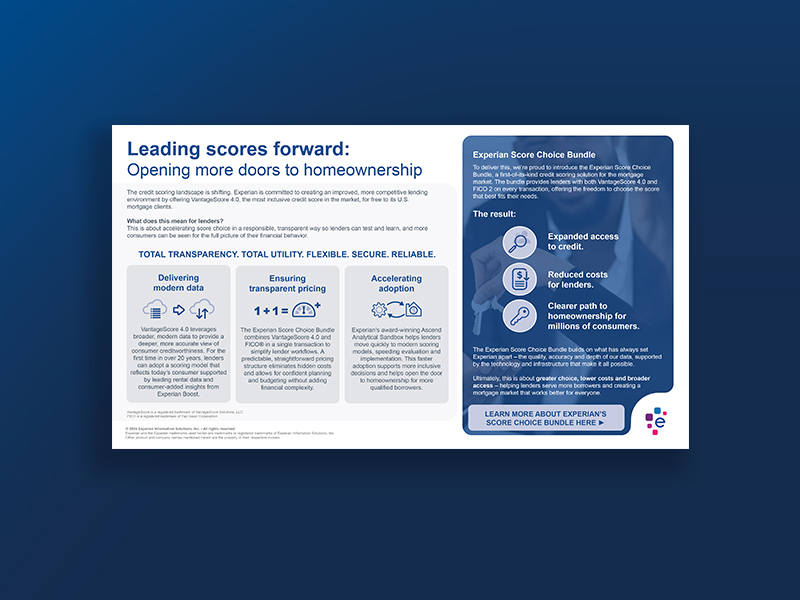 Tip Sheet
Tip Sheet
Discover how Experian’s Score Choice Bundle can empower lenders with modern data and transparent pricing:
 Video
Video
How a rapidly evolving fraud landscape accelerated the need for a smarter, more modern fraud strategy.
Hear directly from Warren Jones, Head of Fraud Strategy & Analytics on:
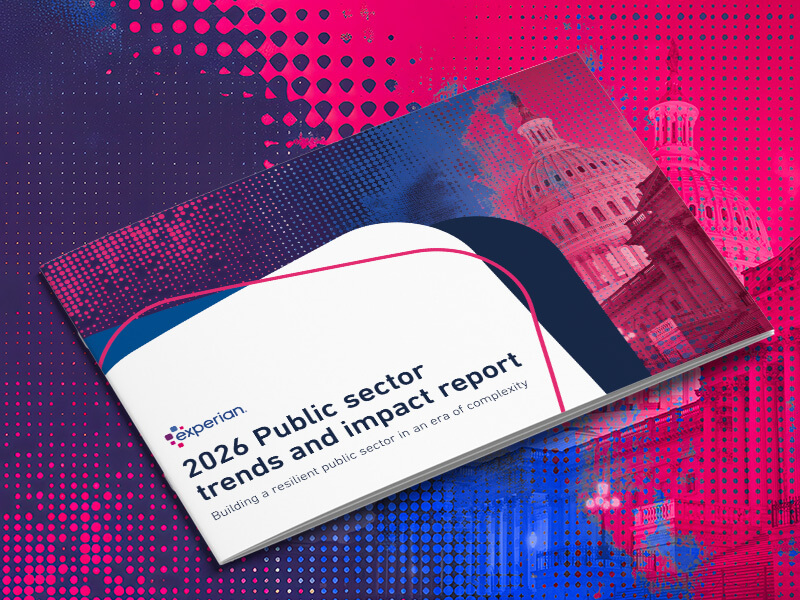 Report
Report
Read our first-annual 2026 Public Sector Trends & Impact Report to understand the forces reshaping agency operations and trust:
 Webinar
Webinar
This webinar breaks down the major themes from Experian’s 2026 Future of Fraud Forecast and what they signal for the year ahead. Our experts explore the trends gaining momentum, including:
The technologies accelerating the next wave of fraud activity
Where fraudsters are finding new openings across consumer and enterprise touchpoints
The strategies forward-looking teams are prioritizing now
 Webinar
Webinar
First-party fraud can look like traditional credit risk, but the intent behind the behavior is very different. In this on-demand webinar, Experian experts show how to use early performance, identity and behavioral signals to distinguish fraud from genuine financial distress and improve portfolio outcomes.
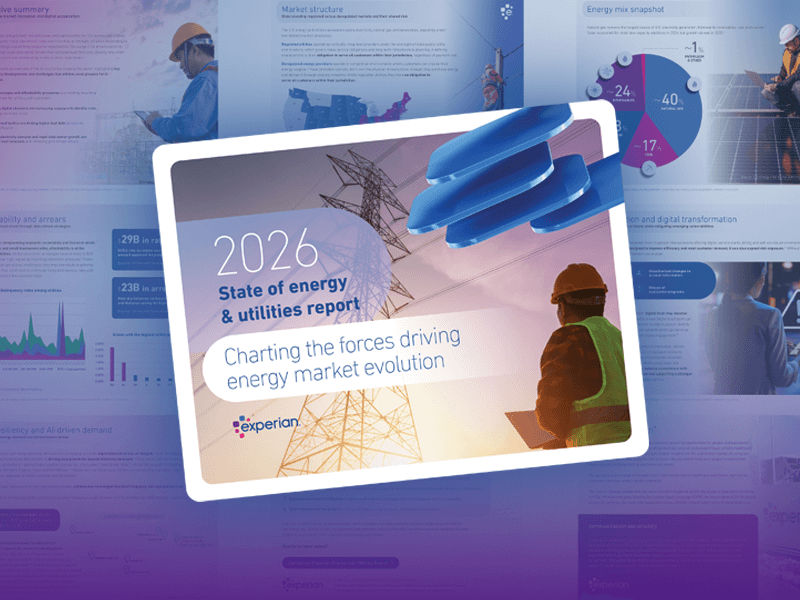 Report
Report
Read our first-ever State of Energy and Utilities Report examining the forces shaping the industry this year.
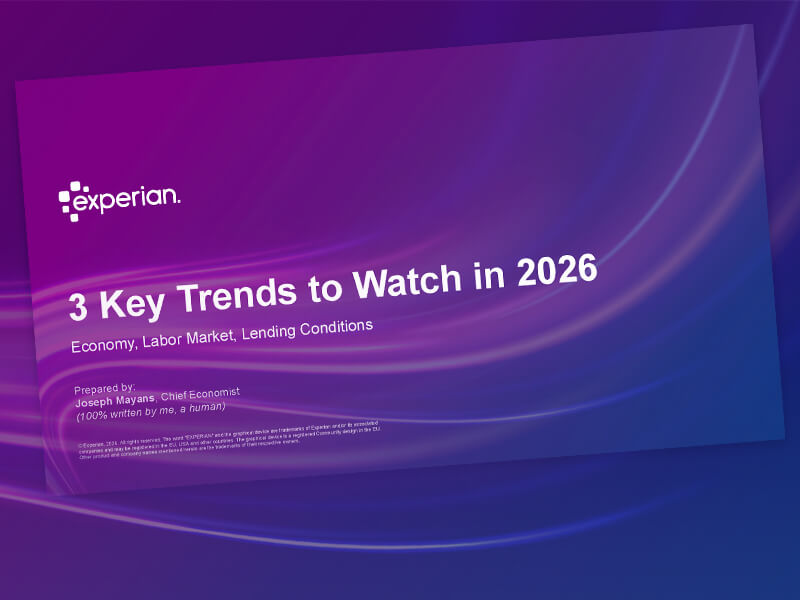 Report
Report
After outperforming expectations in 2025, the U.S. economy heads into 2026 with momentum - and meaningful risks. This Macro Moment explores the forces shaping the year ahead, from AI-driven growth and consumer resilience to evolving credit conditions and labor market uncertainty, helping leaders prepare for what’s next. Key takeaways include:
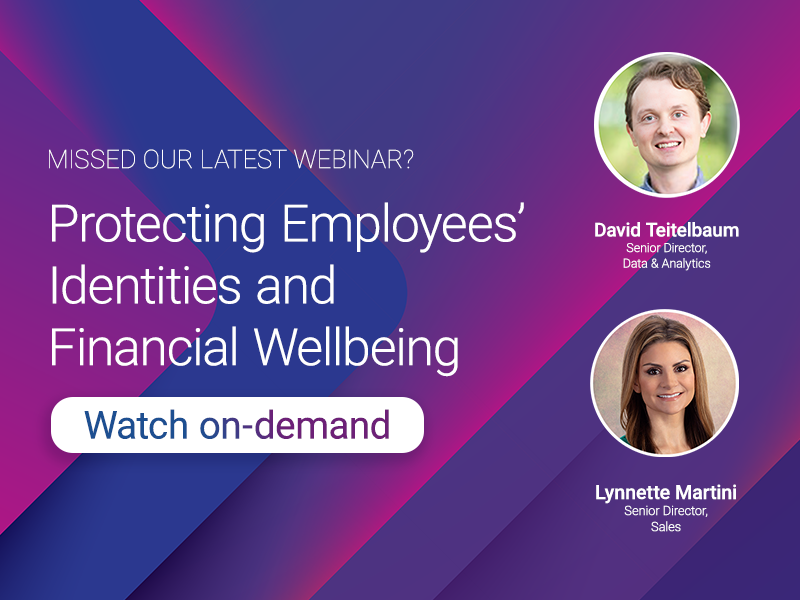 Webinar
Webinar
Experian experts discuss how companies are integrating credit education, identity protection, and financial wellness into their employee benefits offerings.
Watch our on-demand webinar to discover:
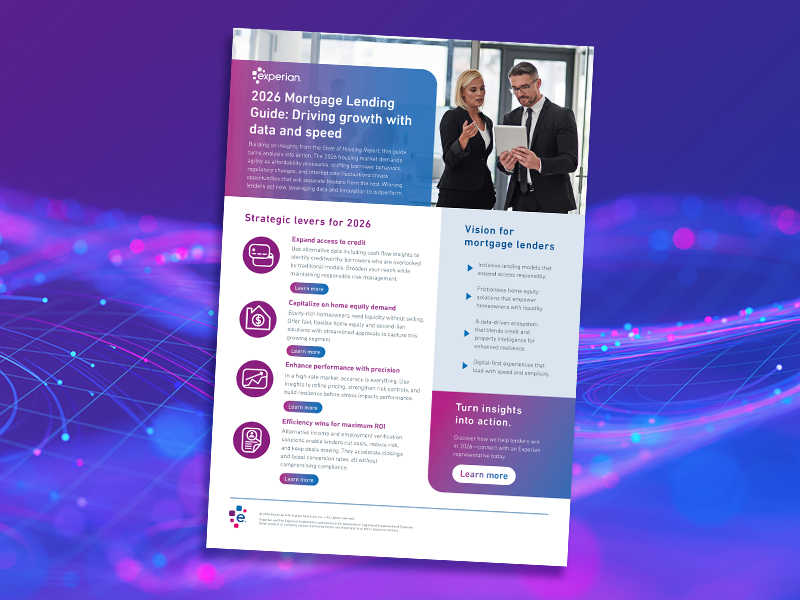 Tip Sheet
Tip Sheet
Insights from Experian’s 2026 Mortgage Lender Playbook to help lenders drive growth and resilience: